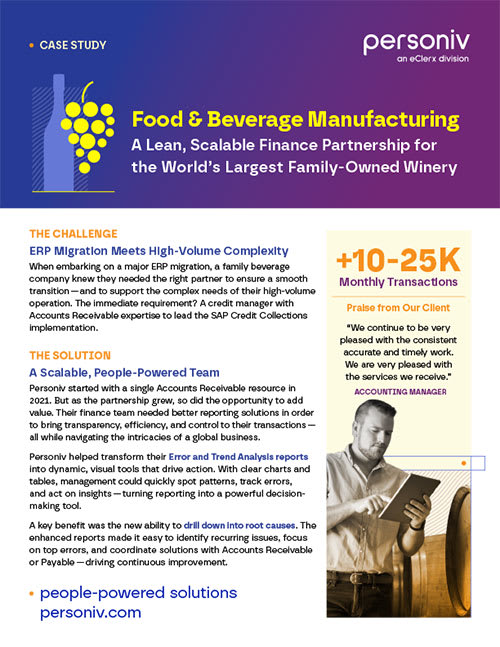Welcome to The Ledger where we sum up the latest finance and accounting news for you. This week, we've rounded up everything finance leaders need to know about succession planning. Read on for insights about what top leaders do when choosing tomorrow’s leaders, creating a comprehensive succession plan, and succession planning in uncertain times.
Next-Gen Talent, and What Top Leaders Do
With the War on Talent so prominent, it is key to identify the right people on your team. Barron’s recently interviewed Ray Sclafani, the CEO and founder of ClientWise on their podcast about succession planning and how important it is today. The main points to look out for?
-
What the Best Leaders Do: These leaders work to be someone that their people want to follow, which means focusing on interdependence more than independence.
-
Plan Ahead: Young leaders may not be thinking of succession now, but the time will come soon when they will be choosing the next generation. In other words, developing those skills in your team starts now.
-
Optimism About the Future: You can’t have a good succession plan without optimism. The idea surrounds investing in your people and being gratified by their success.
They break it all down for you in the podcast. Listen to the full interview here.
A Comprehensive Guide to Succession Planning
When times are uncertain, succession planning become even more critical. And between the Great Resignation, pandemic fallout and a looming recession, succession planning can provide a lifeline. But how do you get started? Follow these steps to create a succession plan that stands the test of time:
-
Critical Vs. Vulnerable Positions: Vulnerable positions are those with no current successor, where tribal knowledge can persist. Critical positions are those that are essential to business operations. These are the positions you want to look at first.
-
Determine Eligibility: What’s required of these positions? How have the responsibilities changed since the current employee was hired? Be sure to know the answers to these questions.
-
Who Will Serve as Interim: Even if you don’t have the in-house talent to fill these critical positions, consider who can serve in the role while you find the right candidate.
-
Evaluate Internal Talent: Maybe the right person to move up is right there on your team. Consider how your employee’s have grown since hiring them and what they might be qualified for outside your organization.
-
Take a Look Outside: It never hurts to have your eye out for your next leader. Follow and connect with those who may potentially be a fit.
-
Prepare Successors: This serves your present and your future. Not only are you preparing your team to take on more responsibility, you are giving them the professional development they are seeking.
Creating a succession plan doesn’t have to be difficult. Follow these steps, and other helpful tips found on Forbes.com.
Succession Planning in Uncertain Times
Transferring knowledge in your business is now more important than ever. SHRM describes succession planning, as a way to transfer knowledge, a bit like playing chess. Leaders must be able to look several moves ahead to prepare for uncertainty in their talent pool. Here is how they suggest to succession plan in uncertain times:
-
Assess Roles: It can take years to prepare internal employees for future roles so planning early is essential. Assess both roles and individuals in your organization early and often.
-
Find Candidates: When the right team is already in place, you have the rare opportunity to plan to hire from within. An added benefit is that when employees know they are being groomed for management positions, and will share in the success of the team, they are more likely to stay.
-
Capture Knowledge: What’s worse than an employee walking away? When they take the processes, procedures and ways of doing business out the door with them. To avoid this, be sure your team is recording procedures and assess your knowledge sharing on a regular basis.
As uncertainty continues, evaluating your roles, talent and tribal knowledge will be key in the succession planning process. Get all the advice from pros who’ve done it at SHRM.com.
Looking to add more dynamite talent to your accounting team (at half the cost)? We can help. Reach out to one of our experts to see how outsourced accounting can help build your team, reduce tribal knowledge and succeed in today’s economy.





















